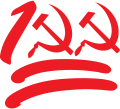reading a bit about past revolutions (mostly cuba, russia, china and vietnam) It seems to me like the peasantry was at least somewhat involved in each of these movements, with sympathetic peasants providing material support to proletarian revolutionary movements. as far as I understood it, this seemed to be particularly present in the chinese new democratic revolutionary government which sought to form an alliance of the four progressive classes under the ideological leadership of the proletariat, the peasantry being one of these four classes.
another thought is, does the peasant class still exist in the imperial core? I have farmers In my family but I'm not sure if they would qualify as peasantry, as while they own the land they work (and work it themselves, not employing workers afaik), they are entirely dependent on external factors to maintain their lifestyle (having to buy seeds, pesticides, fertilizer, fuel for equipment) rather than being relatively independent from the capitalist class. maybe I misunderstand the definition of peasant, but modern farmers in the imperial core seem to more closely fit the description of petty bourgeoisie, and this seems like a key difference between them and the peasant class that existed at the time of past proletarian revolutions.
this also brings up another couple questions: first, would a proletarian revolution in the imperial core today be able to rely on such a class of farmers (weather they qualify as peasant of petty bourgeoisie) to be sympathetic or does historical precedent make it seem more likely they would a reactionary opponent to progress? second, If the proletariat cannot rely on the support of any other class, how would revolutionary strategy differ from previous revolutionary movements?
sorry in advance if these are dumb questions.

I have?
Major revolutionary movements will probably require some sort of solidarity with agricultural growers in order to coordinate food around the will of Capital. I vaguely remember Fanon's Wretched of the Earth also discussing a need for the leftists in the cities to connect and build with the people living out in the urban areas.
Totally fiction, but the show Damnation (watch here ublock it.) is about farmers striking because banks were coordinating with shops in the town to keep prices artificially low. It's quite good, very much recommend checking out.
the show Damnation (watch here ublock it.) is about farmers striking because banks were coordinating with shops in the town to keep prices artificially low. It's quite good, very much recommend checking out.
https://yewtu.be/watch?v=qYFguoAh4j8
And of course, there's Steinbeck's Grapes of Wrath which is all about the banks driving farmers off their land.